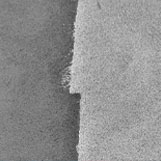When you’re in the process of divorcing, you’re not going to be in the best place emotionally to make the important decisions that court proceedings will require you to make. Plus, going to court is surely the last thing that you’ll want to do when you’re worried about organising the division of assets and childcare. This is why I always work hard to keep all cases out of court, if I can. Though some divorces will inevitably end up in court, many really don’t need to. Instead, Mediation or Collaborative Practice are much better options.
Keeping Divorce Out of Court is Often Best
Regardless of why you are getting divorced or who you are divorcing from, it’s often best to avoid court if it’s possible to do so. This is for a number of reasons, such as:
- It Keeps You in Control of Decision Making – By keeping a divorce case out of court, you stay in control of decision making. In court, the decisions made in a divorce case are based upon the law and the judge trying to establish findings in fact to enable them to apply the law. It’s impersonal and often based on the impression you give in court and it doesn’t take into consideration what’s best for you as an individual.
- It’s Less Stressful and Upsetting for Children – Let’s face it, no child wants to attend court or be interviewed by a court appointed reporter and no child wants to know that their parents are arguing in front of a judge over custody and contact arrangements. Simply put, it’s stressful and upsetting. Children should be protected as much as possible from the bitterness that divorce can cause and keeping things out of court is often the best way.
- It Gives Your Relationship a Chance to Stay Civilised – There is a risk of a divorce ruining any remainder of a relationship, but this risk is heightened if the case goes to court. Many couples need to keep a civilised relationship after they have divorced, especially if there are children involved. This is something that’s often possible with Mediation and Collaborative Practice as they both focus on discussion and compromise.
As an accredited family lawyer, I believe that it’s a lot easier to create a positive outcome if a separation or divorce is kept out of court. Instead, I recommend Mediation and Collaborative Practice to my clients. To find out more beginning divorce proceedings or for help with a separation, get in touch. Contact Cath Karlin Family Law on 0131 240 1213 or via the online contact form.








